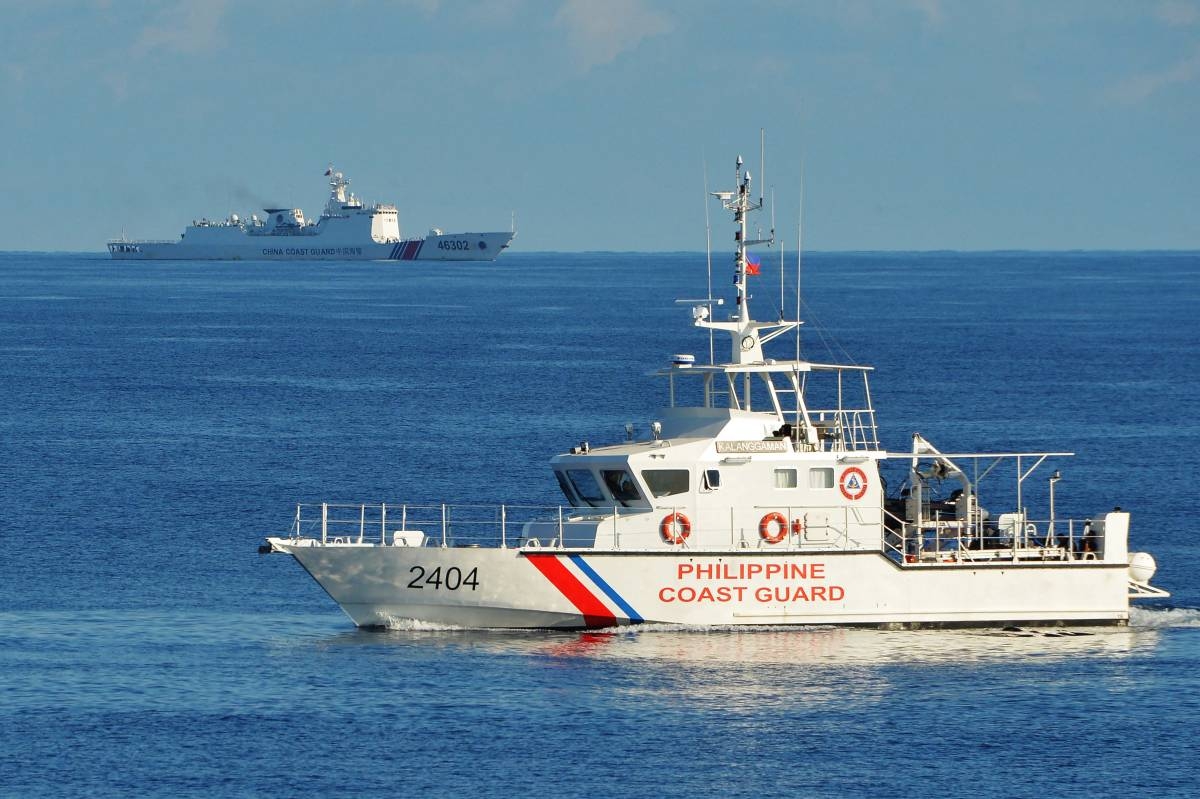(UPDATE) MANILA, Philippines: In a concerning incident, three vessels belonging to the Bureau of Fisheries and Aquatic Resources (BFAR) were relentlessly bombarded by water cannons on Saturday. The perpetrators? A China Coast Guard (CCG) ship, off the coast of Bajo de Masinloc (Scarborough Shoal), which is part of the West Philippine Sea.
According to Ray Powell, a security expert based in the United States, the BRP Datu Sanday (3002), BRP Datu Bankaw (3004), and BRP Datu Tamblot (3005) have been closely engaged with CCG 3302 and 3305, as well as four China maritime militia ships, for the past three hours.
This aggressive act by the Chinese ships raises serious concerns about the safety and security of the Philippine vessels, which were on a supply mission to assist Filipino fishermen in the area.
It is important to note that Bajo de Masinloc, also known as Scarborough Shoal, has been a subject of territorial disputes between the Philippines and China. The international community recognizes the area as part of the West Philippine Sea, but China claims it as part of its territory.
Under international law, specifically the United Nations Convention on the Law of the Sea (UNCLOS), countries have exclusive economic rights over the waters and resources within their respective exclusive economic zones (EEZs). The Philippines has the right to conduct maritime activities in its EEZ, including supplying its fishermen.
However, China’s assertive actions in the South China Sea, including the West Philippine Sea, have raised concerns among neighboring countries and the international community. China’s expansive claims and aggressive behavior have led to tensions and disputes in the region.
While the Philippines has pursued diplomatic channels to address these disputes, incidents like the harassment of Philippine vessels by the Chinese Coast Guard highlight the need for continued international attention and support.
It is crucial for the international community to condemn any actions that undermine the principles of freedom of navigation, respect for international law, and the peaceful resolution of disputes. The harassment of Philippine vessels not only violates the sovereignty and rights of the Philippines but also poses a threat to regional stability and security.
The Philippines has consistently called for the resolution of disputes in the South China Sea through peaceful means, in accordance with international law. The country has also sought the support of its allies and partners to maintain a rules-based international order in the region.
In conclusion, the harassment of Philippine vessels by the Chinese Coast Guard in the West Philippine Sea is a clear violation of international law and a threat to regional stability. The international community must continue to support the Philippines in its efforts to uphold its rights and protect its fishermen. It is crucial to ensure that the principles of freedom of navigation and the peaceful resolution of disputes are respected in the South China Sea.
WITH A REPORT FROM FRANCIS EARL CUETO







